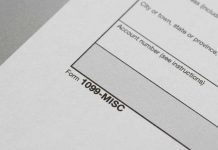
What does your study routine look like? Do you grab your textbooks, a fresh pack of postcards, a couple of highlighters and settle in for an endless cram session?
If so, you’re doing it all wrong – and you may be working way too hard. This effortless study hack can help you put away the drudgery of studying for good and learn almost anything quickly and effectively.
Old Study Techniques Don’t Work
If you find it difficult to absorb new information, it’s not your fault! The way most of us were taught to study — reading, highlighting and reviewing — doesn’t work. Sure, it’s a little better than placing the book under your pillow and trying to learn through osmosis, but it doesn’t deliver the best results.
Neither does simple transcription. Taking notes by hand is a little better because it makes you think about the material when you organize your notes and summarize essential points. But it’s still not the easiest way to learn.
This Trick Can Help You Learn Faster
So what’s the simple learning hack that helps you absorb new information faster and retain it for longer, anyway? And how can something “easy” and “virtually effortless” really work long-term, anyway…isn’t hard work how you get ahead.
Not always!
In truth, the most helpful thing you can do is…
Take a break.
Research has shown that breaks help you file away and remember new concepts, and sleep is particularly important for the process. In case you’re wondering, yes that does mean you might benefit from a good afternoon snooze.
According to a new study, brain waves change much more during periods of rest than they do periods of active learning. This may help the brain to consolidate and solidify memories during breaks.
How to Structure Your Study Time
So, what should your study time look like?
- For best results, schedule short, intense bursts spread out over time.
- Instead of beginning to study for an exam the day before, start studying a week prior.
- Schedule 15- to 20-minute study sessions for each day leading up to the test.
- Follow those sessions with breaks and fun activities.
Beating information into your brain just doesn’t work. You learn faster and retain more when you give yourself a series of short breaks. Intense cram sessions are also out the window. Instead, strive to learn new information in a series of study sessions sandwiched between plenty of rest and down time.
Copyright 2020, DailyProsper.com




























